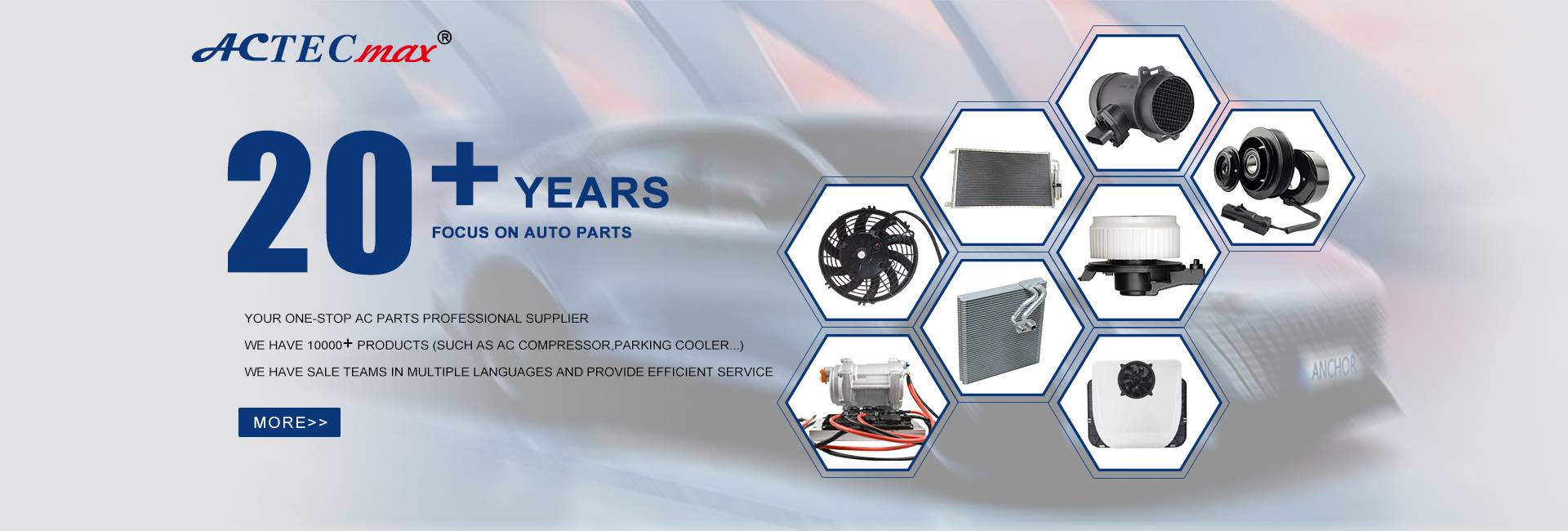
Automotive air conditioning systems play a crucial role in ensuring passenger comfort during hot days and long journeys. The heart of these systems is the auto AC compressor, responsible for compressing and circulating refrigerant to cool the cabin. To ensure optimal performance, it is essential to conduct thorough suction and discharge tests on the auto AC compressor. In this article, we will delve into the significance of these tests and highlight Anchor Group as a professional auto AC compressor supplier.
- Understanding Auto AC Compressor Suction and Discharge Tests:
The auto AC compressor suction and discharge tests evaluate the performance and efficiency of the compressor in an automotive air conditioning system. These tests encompass measuring various parameters to assess the compressor’s operation:
a) Suction Pressure: The suction pressure is measured using a pressure gauge connected to the compressor’s suction line. It indicates the pressure at which the refrigerant vapor enters the compressor.
b) Suction Line Temperature: The temperature of the suction line near the compressor is measured using a thermometer or temperature sensor. It provides insights into the temperature of the refrigerant vapor before entering the compressor.
c) Superheat: Superheat is calculated by comparing the suction line temperature to the saturation temperature corresponding to the suction pressure. It indicates the amount of heat absorbed by the refrigerant vapor above its saturation point.
d) Discharge Pressure: The discharge pressure is measured using a pressure gauge connected to the compressor’s discharge line. It indicates the pressure at which the compressed refrigerant gas leaves the compressor.
e) Discharge Line Temperature: The temperature of the discharge line near the compressor is measured using a thermometer or temperature sensor. It provides insights into the temperature of the compressed refrigerant gas as it exits the compressor.
f) Subcooling: Subcooling is calculated by comparing the liquid line temperature to the saturation temperature corresponding to the liquid line pressure. It indicates the amount of heat rejected by the refrigerant below its saturation point.
- Significance of Auto AC Compressor Suction and Discharge Tests:
Conducting suction and discharge tests on the auto AC compressor holds several key benefits:
a) Performance Evaluation: These tests provide a comprehensive assessment of the compressor’s suction and discharge processes, enabling technicians to evaluate its performance and identify any irregularities or inefficiencies.
b) Issue Identification: By analyzing the test results, technicians can pinpoint potential issues such as low suction pressure, high discharge temperature, or inadequate superheat/subcooling. This information aids in diagnosing and resolving compressor problems promptly.
c) Optimization of Cooling Efficiency: Suction and discharge tests help optimize the efficiency of the automotive air conditioning system by ensuring that the compressor operates within the recommended pressure and temperature ranges. This, in turn, enhances cooling performance and passenger comfort.
d) Prevention of Costly Repairs: Early detection of compressor issues through regular suction and discharge tests can prevent major breakdowns and expensive repairs. Timely maintenance measures based on test results can prolong the compressor’s lifespan and minimize system downtime.
- Anchor Group: A Professional Auto AC Compressor Supplier:
Anchor Group is a reputable and experienced supplier of auto AC compressors. With a deep understanding of the automotive industry, we specialize in providing high-quality compressor solutions to meet the diverse needs of our customers.
Our commitment to excellence is reflected in our comprehensive knowledge of auto AC compressors and their critical role in automotive cooling systems. With years of experience, technical expertise, and state-of-the-art manufacturing facilities, Anchor Group ensures the production of reliable and efficient compressors that meet industry standards.
Conclusion:
Auto AC compressor suction and discharge tests are vital for assessing and optimizing the performance of the compressor in automotive air conditioning systems. These tests enable technicians to evaluate the compressor’s operation, identify potential issues, and enhance cooling efficiency. As a professional auto AC compressor supplier, Anchor Group combines its expertise, technical proficiency, and commitment to excellence to deliver top-quality compressor solutions that meet the needs of the automotive industry. Partner with Anchor Group to experience our dedication to providing reliable and efficient auto AC compressors.


